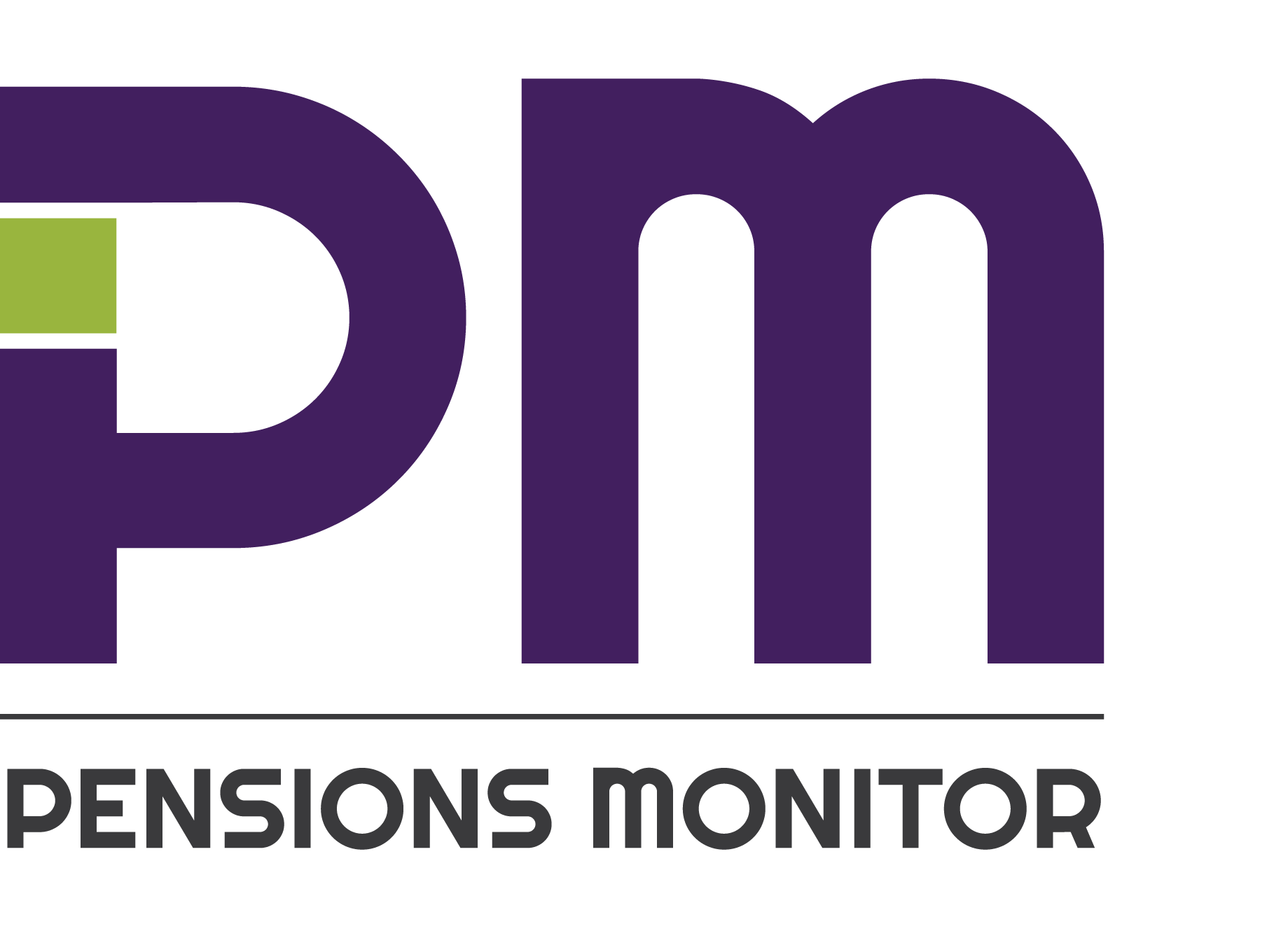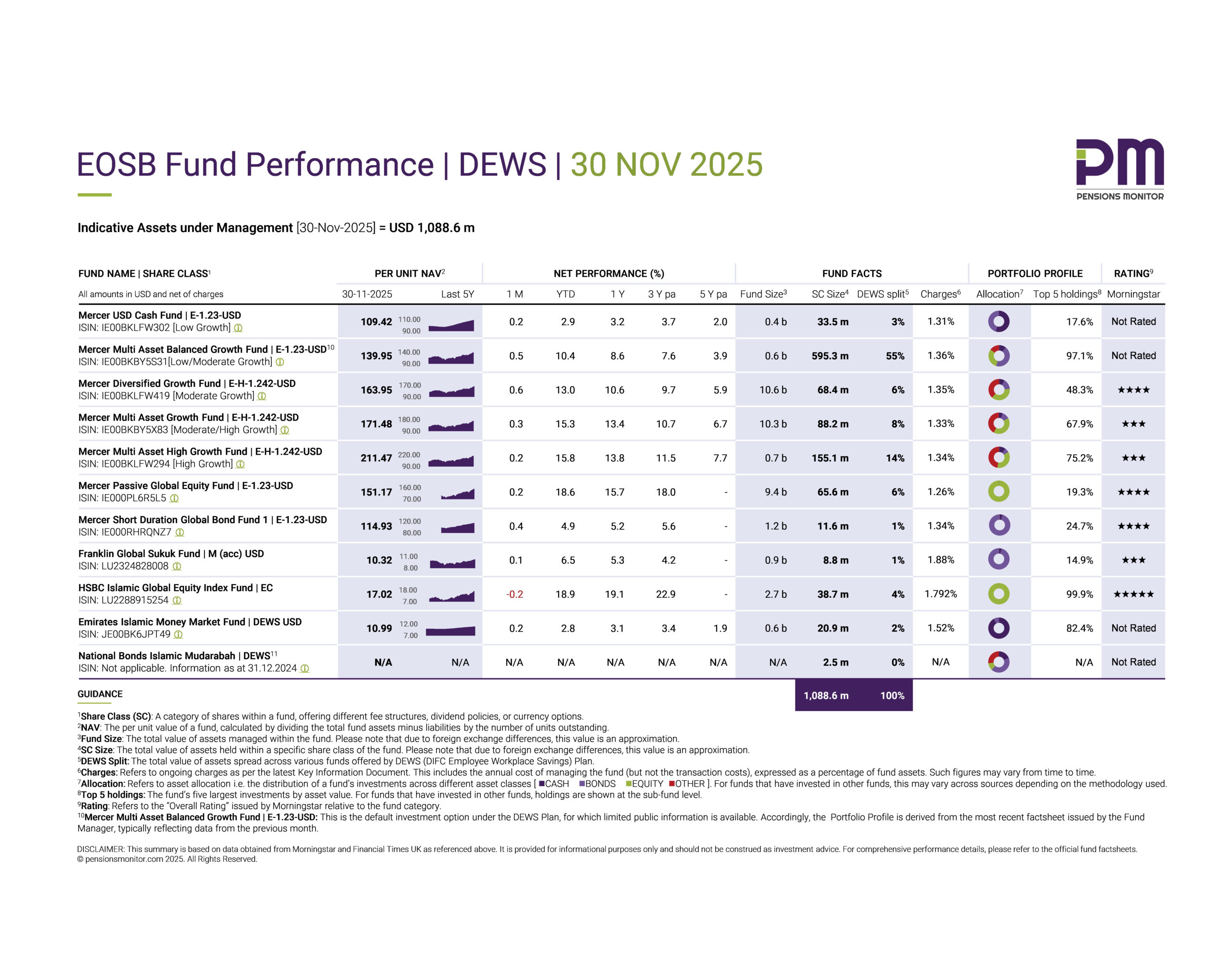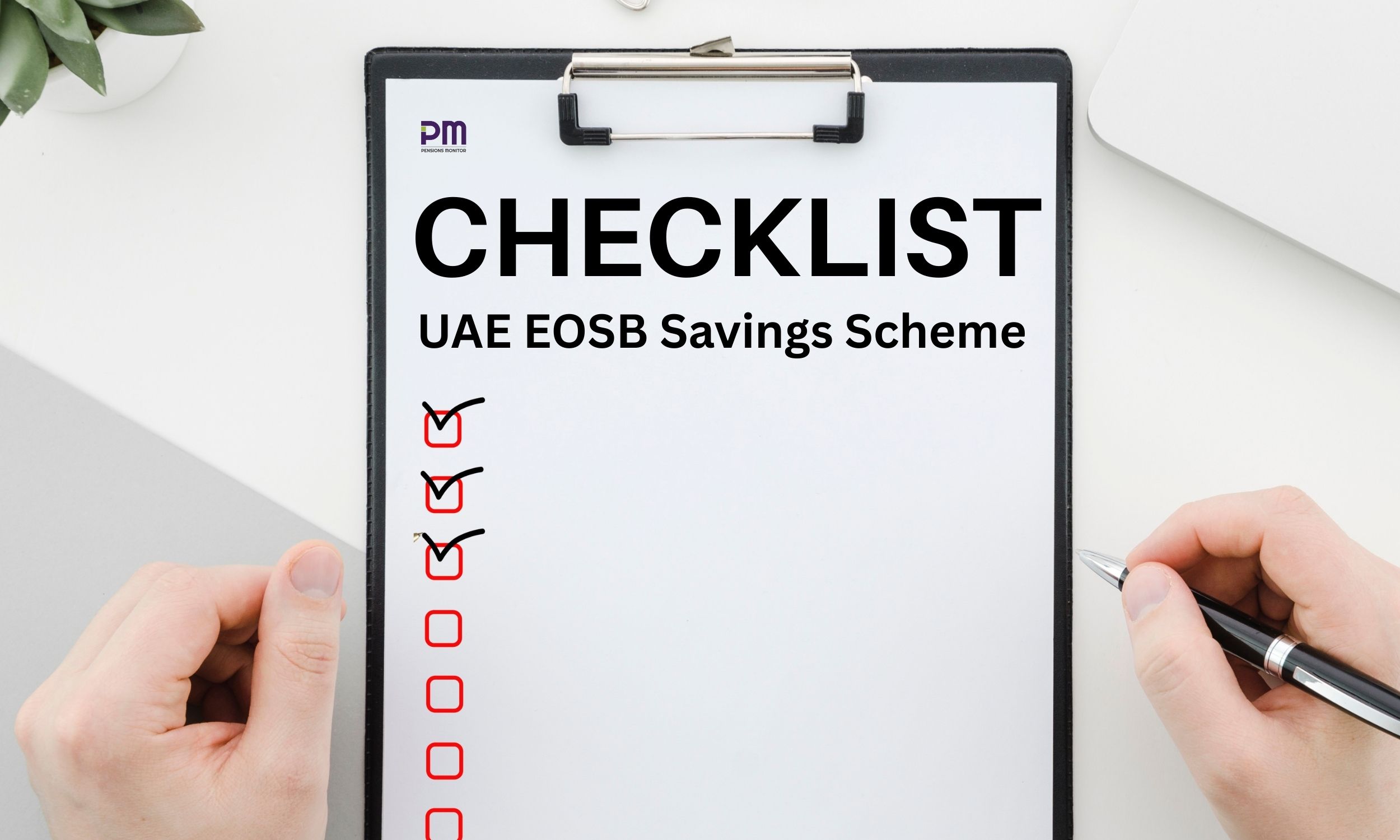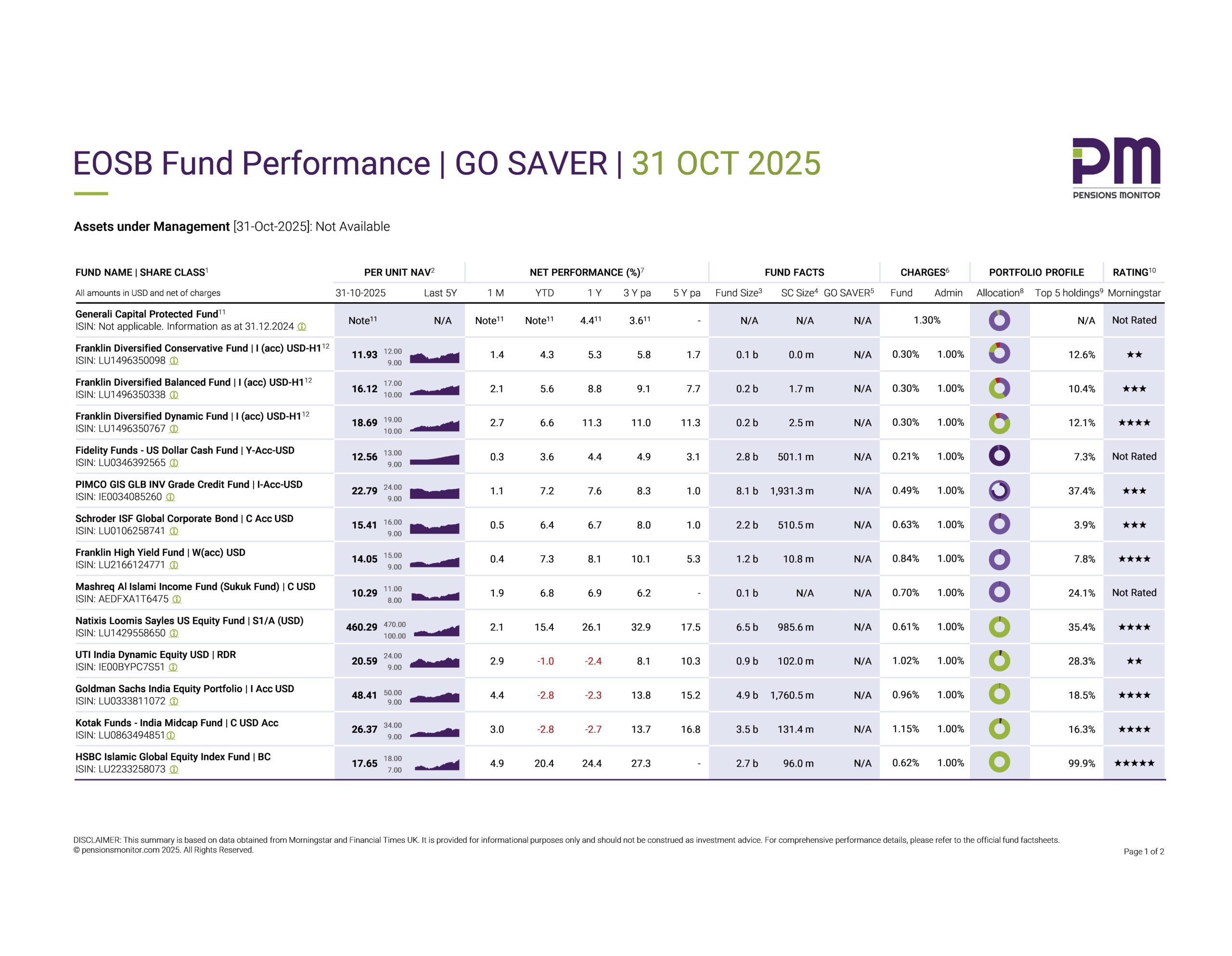
By now most HR professionals are aware of the UAE’s new End of Service Benefits (EOSB) Savings Scheme that was introduced in 2023. Sure, it’s voluntary today but it’s widely expected to become compulsory in the future.
In short: Get ready to say goodbye to the current gratuity system and hello to an investment-based scheme!
For HR and business leaders, this is no small change. It raises many critical questions:
For instance, it’s clearly advantageous to enrol in the scheme during this voluntary phase but there are also good reasons to wait it out. Should you enrol now or wait? And how will you phase the roll-out?
Next. A bigger question, and the most critical in our opinion: Which fund manager should you choose and how do you compare them? There are currently four approved fund managers, with a few more expected to be approved in due course.
And then there’s more. Who in the company actually makes the final call – HR, Finance, the Board or a special project committee? What about employees, should they have a say in the process?
These are complex, high-stakes decisions. And naturally, many HR leaders are wondering: who can they turn to for advice?
Advice from whom?
There are several types of firms already stepping in to advise on the UAE EOSB Savings Scheme (the official scheme). Let’s go through them by broad category:
- Employee Benefits (EB) Consultants: EB Consultants like Mercer, Willis, Aon, Lockton and others are longstanding players in the Employee Benefits space. They have deep experience in employee benefits package design including Group Medical insurance, Group Life insurance, International Pension Plans, special remuneration schemes, and much more.
- HR Consultancies: Firms such as Hays, Michael Page, Nadia, and Charterhouse bring a strong understanding of HR practices, compensation, and benchmarking.
- The Big Four: KPMG, PwC, EY, and Deloitte offer broad, multidisciplinary expertise, from tax and accounting to HR transformation, so they may well cover EOSB advice.
- Financial consultants: And then there are financial consultants and advisors operating across the UAE including in DIFC and ADGM. Each jurisdiction has its own regulator – DFSA in DIFC, FSRA in ADGM, and the Securities and Commodities Authority (SCA) on the mainland – with different rules on what activities advisers are permitted to undertake and the geographic scope (“permitted zones”) in which they can operate.
But are they licensed?
This is where HR professionals need to tread carefully.
For general HR or management consultancy, there are no special licensing requirements. But the moment advice touches financial products, such as recommending which fund manager is best for a given workforce, proper licensing becomes essential.
All the official EOSB funds and fund managers fall under the supervision of SCA. Hence, in our view, any firm advising, promoting, or arranging these products must also be licensed by SCA.
SCA has a dedicated license for Financial Consultations authorising firms to provide financial advisory and consulting services, including promoting investment products. Only firms holding this license are formally qualified to advise on SCA-regulated EOSB funds. (You can view the full list of licensed firms on SCA’s official register.)
It will be interesting to see whether all consultancies currently advising on the official scheme meet that standard and how SCA may respond if they don’t.
What about other voluntary schemes?
Apart from the official scheme, there are a number of “voluntary schemes” in the market. We covered this in an earlier article.
These voluntary schemes are essentially employer liability funding + employee saving schemes, and do not relieve companies from their gratuity obligations under the UAE Labour Law.
Such schemes are offered by different providers including insurance companies such as Sukoon, Hayah and Zurich and trust service providers such as Praxis and TMF Group Fiduciary Services Limited. (TMF recently launched a new voluntary scheme which we will cover in a separate article. Stay tuned!).
Products offered by insurance companies are approved by the Central Bank of the UAE (CBUAE), and advice on these schemes naturally falls to licensed insurance brokers.
Finally, who pays for the advice?
Another consideration is cost. The Financial Services Industry knows several mechanisms how advice can be paid for.
In insurance, for example, the cost of advice is built into the product itself by way of broker commission. (Yes, the friendly chap who advices you on a life insurance product isn’t acting out of pure altruism. His commission is built into the policy you buy).
But investment funds work differently. They charge a management fee which is a percentage of the Assets under Management (AUM) – in the case of EOSB funds, it’s employee EOSB savings. This fee is deducted from the fund and hence borne by employees. And as far as we know, the fees charged by the official EOSB funds are relatively low, leaving no margin to build in adviser (sales) commissions.
That means companies seeking guidance will need to budget for professional advice. If you’re not paying for advice, it likely means your employees are! And, in such cases, the advice may not be fully independent. It is worth being mindful of that.
Our thoughts
So, what does this all add up to? Let’s summarize:
- Firstly, transitioning to a savings scheme is a complex process and poses some critical questions that most HR teams may not have encountered before. As such, external advice is recommended.
- There is no shortage of advisory firms in the HR – Compensation and Benefits domain in the UAE.
- But when it comes to SCA-regulated financial products such as the UAE EOSB Savings Scheme, HR and business leaders should tread with caution. In our opinion, you must engage SCA-licensed financial consultants for advice.
- And finally, remember: good advice is not free and free advice may not be fully independent. So, companies must budget for advice.
At Pensions Monitor, we believe awareness is the first step to informed decision-making. That’s why we’re launching EOSBase – a structured, desk-friendly course designed to give HR and business leaders the clarity they need to navigate the EOSB transition, one step at a time.
Reserve your EOSBase seat today to be among the first to get notified when the early bird offer is announced.





